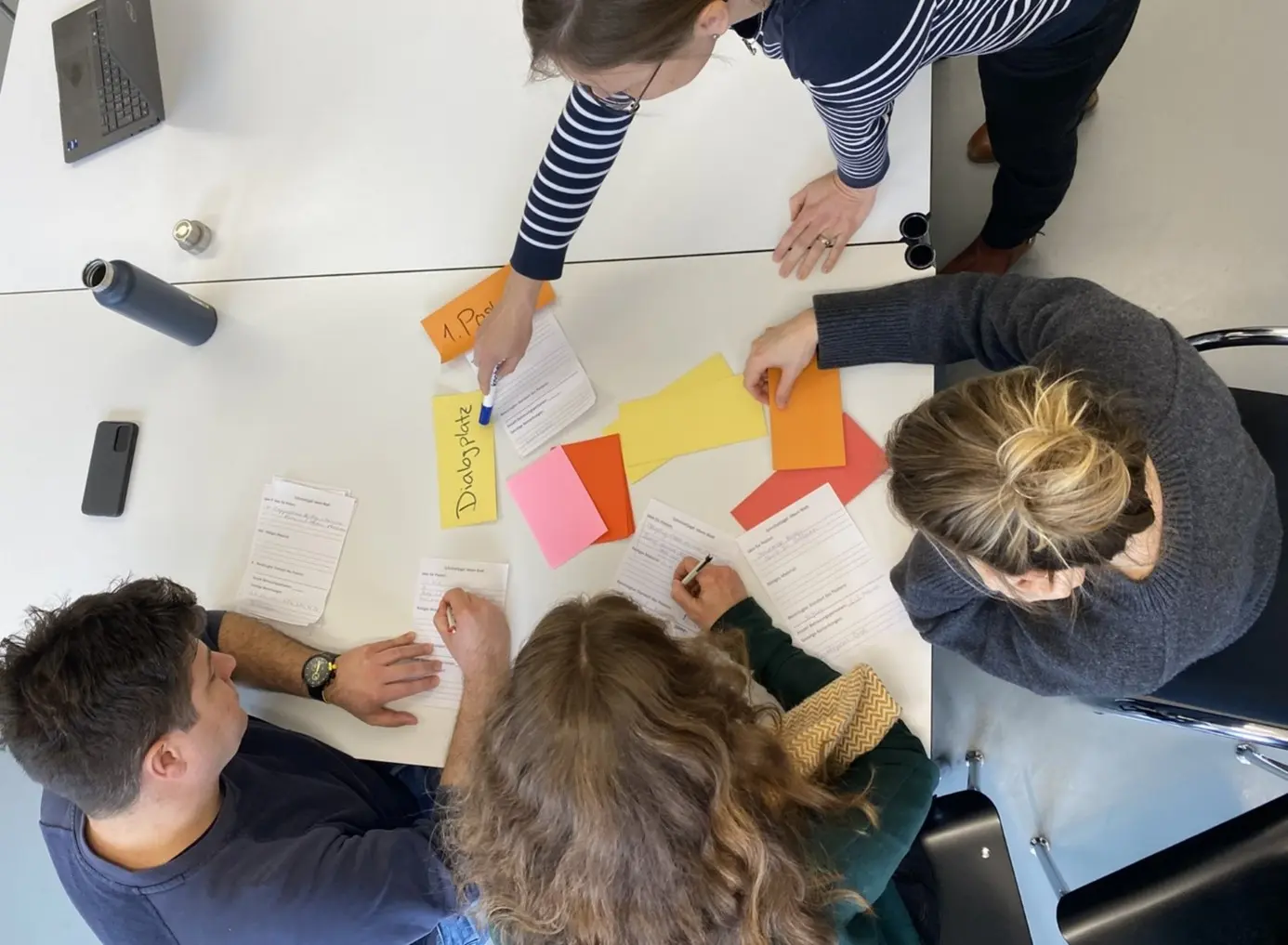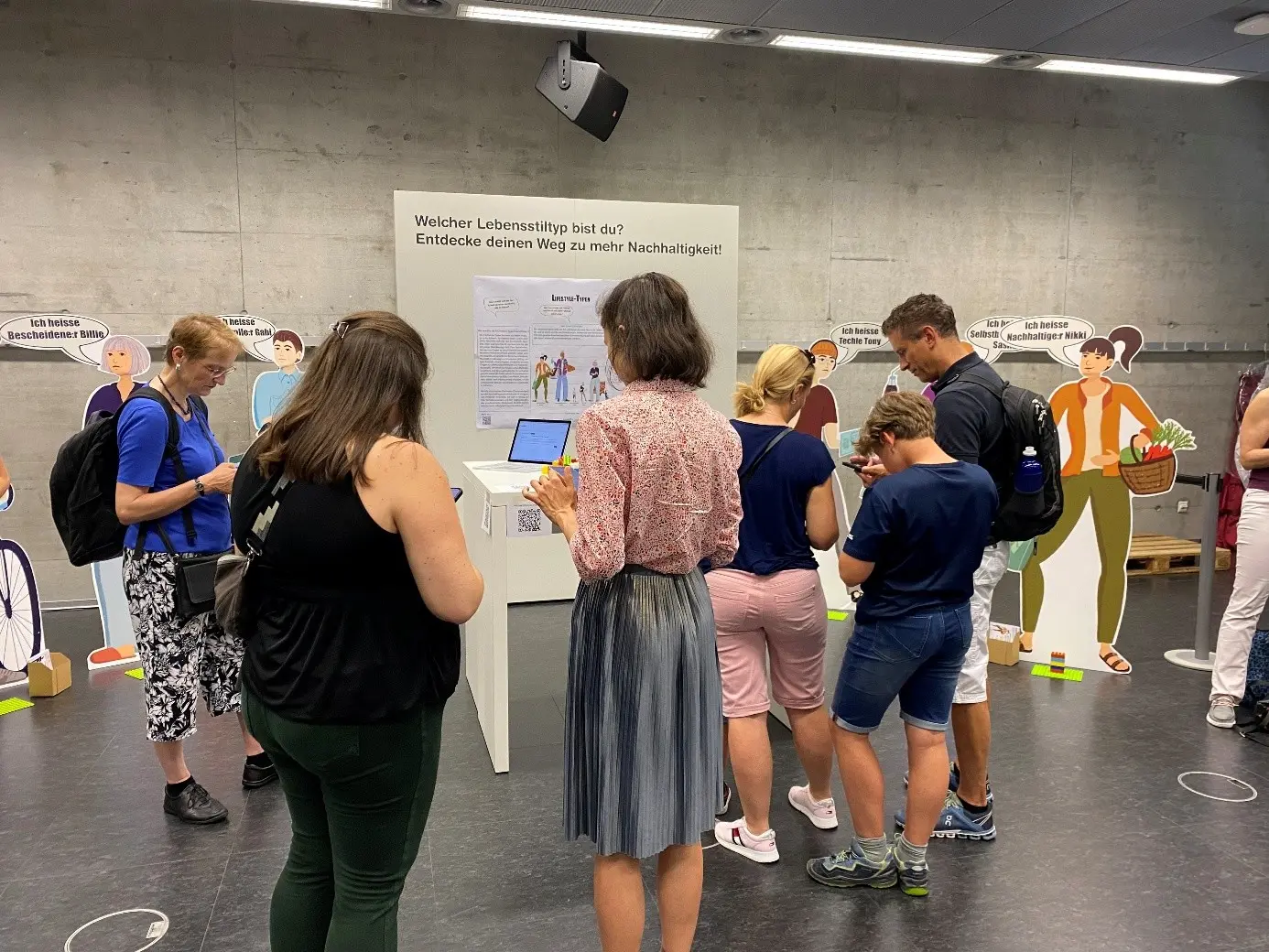Team Energy Behaviour
“Technology alone is not enough to solve the major social challenges in the areas of energy, the environment and climate change.
We are researching human thinking and behaviour as key factors for a successful sustainability transformation - and how change can be shaped together.”
Dr Bernadette Sütterlin and Evelyn Lobsiger, Co-Head of the Energy Behaviour Team
Thematic and Methodological Focal Points
A successful transition to a more sustainable society requires more than the provision of innovative technologies - it requires a change in human perception, behaviour and lifestyle.
The Energy Behaviour Team investigates the drivers and motivations for environmentally relevant behaviour and the underlying mechanisms and develops effective, socially accepted interventions to promote sustainable behaviours and lifestyles. These findings guide policy makers, municipalities and cities, property managers, developers and non-governmental organisations in their sustainability efforts.
Our research covers a broad spectrum of sustainability-relevant behaviours - from sufficiency and efficiency to the application of new technologies and policy support - and relates to different areas (housing/energy, mobility, food) and contexts (everyday life, work, leisure). We focus on individuals, households and middle actors (e.g. cooperatives, administrations, municipalities) and apply a living lab approach to jointly develop successful, targeted solutions to promote sustainable behaviour.
We support you in the development, implementation and evaluation of projects to promote sustainable lifestyles and behaviours.
LinkedIn Feed
-
LINKEDIN
🌍 CINEA Cluster Meeting on Positive Energy Neighbourhoods and Districts Horizon Europe PEDvolution project was actively presented by Amin Kouti, Paulina Rodriguez Fiscal and Vicente Carabias. The ...
ZHAW Institut für Nachhaltige Entwicklung (INE)
-
LINKEDIN
Wir durften am INE ZHAW School of Engineering eine tolle interdisziplinäre Bachelorarbeit zwischen Studierenden der Studiengänge Energie-Umwelttechnik und Data-Science betreuen. Die Zusammenarbeit zum ...
ZHAW Institut für Nachhaltige Entwicklung (INE)
Ongoing Projects
- SWEET SWICE: In the SWICE project, we are leading work package 1 "The Human Dimension of Change", where we have created a lifestyle typology for sustainability-relevant areas and are researching which types can be addressed with which specific sustainability-oriented interventions at area level. To this end, we are working in the Living Lab Lokstadt and developing projects in a participatory process together with local stakeholders and evaluating the effects on energy consumption, behavioural and attitude changes and quality of life. In work package 8, we are working together with the Team Sustainability Transitions on living lab approaches. One of the tools developed for this purpose is the Toolkit for tailored sustainability interventions.
- SWEET Lantern: In work package 5, we are investigating the links between new forms of work and energy consumption on a holistic level and, together with companies, are developing new solutions for energy-efficient and socially acceptable forms of work and accompanying measures. In work package 3, we developed a persona tool that is used for co-design processes in the context of energy and sustainability projects.
- Swiss Smart City Survey: As part of the Swiss Smart City Survey, the current status of the transformation of Swiss cities and municipalities towards smart cities is determined and needs in their transformation to Smart Sustainable Cities & Communities and in the implementation of SC solutions are recorded. The survey will be repeated periodically to identify long-term developments and trends. The project enables a better overview, coordination, comprehensibility (measurability and comparability) of smart city development and easier access to reference projects. The results of the surveys can be viewed in the interactive dashboard of the Swiss Smart City Survey or in the accompanying report.
Laderabatt: As part of the project, a charging management system for electric cars is being developed which, by integrating the balancing energy market, enables charging point operators to purchase electricity under favourable conditions, but requires greater flexibility on the part of end users. In work package 2, we are analysing the perception of this charging management system by end users and attempting to learn from this about the possible implications for communication and billing.
Abgeschlossene Projekte:
- Lifestyle Typen: Description of the lifestyle types identified in Switzerland-wide surveys and the development of a digital quiz to determine your own type.

